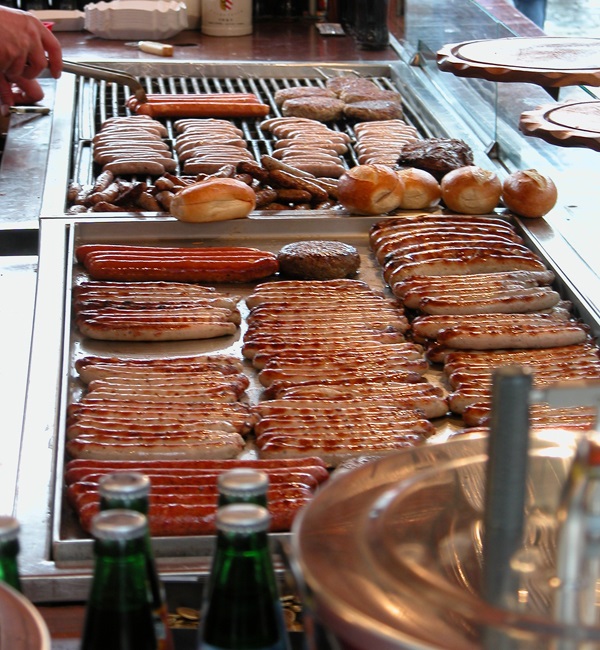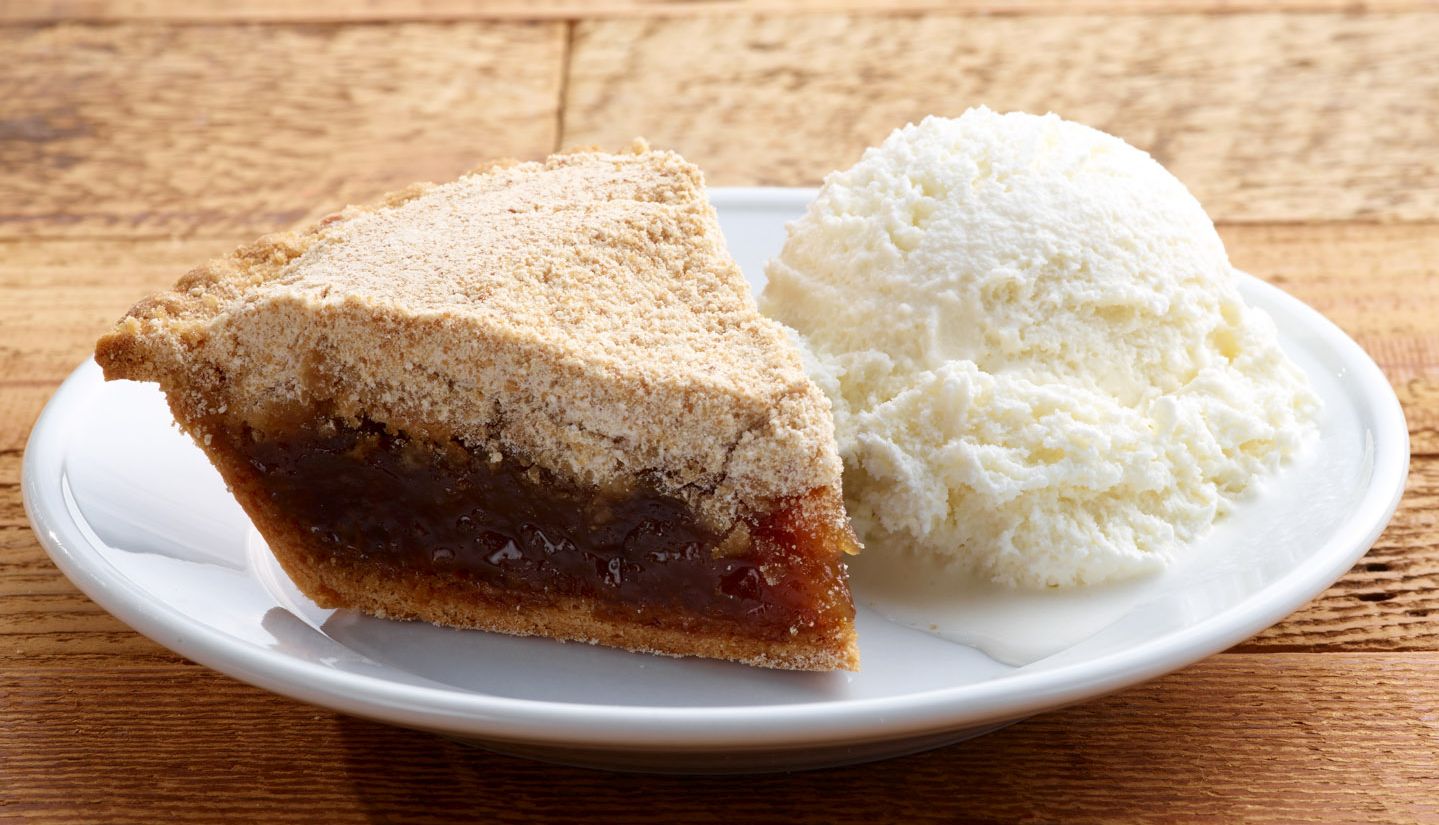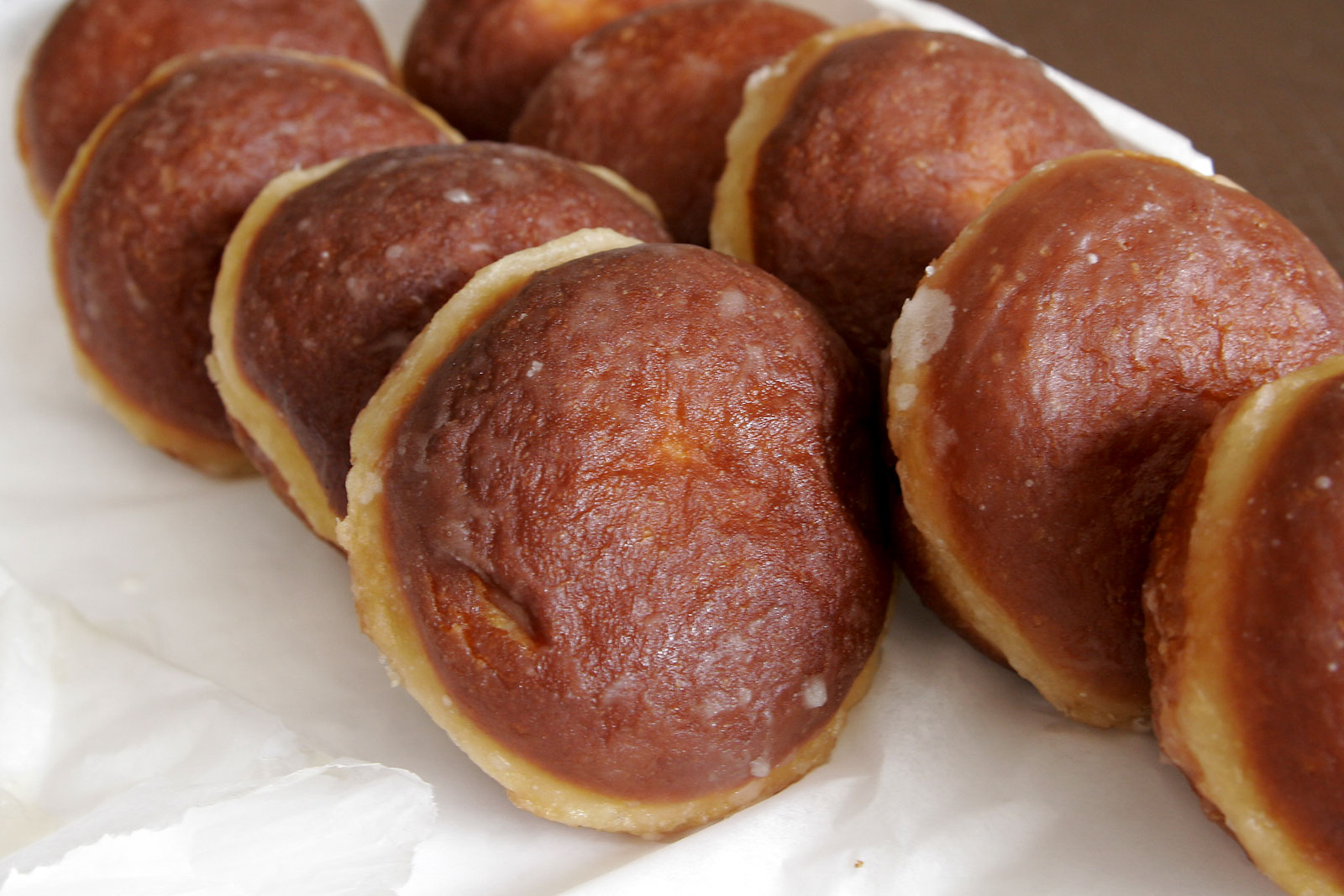|
Fasnacht (pastry)
Fasnacht (also spelled ''fastnacht'', ''faschnacht'', ''fosnot'', ''fosnaught'', ''fausnaught'') is a fried doughnut of German origin served traditionally in the days of Carnival and Fastnacht or on Shrove Tuesday, the day before Lent starts. Fasnachts were made as a way to empty the pantry of lard, sugar, fat, and butter, which were traditionally fasted from during Lent. Overview The Pennsylvania Dutch in the area surrounding Lancaster, York, Berks and other PA Dutch counties in Pennsylvania, celebrate Fastnacht. Most chain supermarkets in eastern Pennsylvania offer fasnachts. A similar culinary treat is the Polish Pączki. Pączki are traditionally eaten in Poland on the Thursday prior to Fasnacht Day, although in Polish communities of the US, the tradition is more commonly celebrated on Fasnacht Day. Commonly pączki are round, rather than having straight sides, and they are filled with jelly, or creme filling. In parts of Maryland, the treats are called Kinklings, or "Kuech ... [...More Info...] [...Related Items...] OR: [Wikipedia] [Google] [Baidu] |
Germany
Germany,, officially the Federal Republic of Germany, is a country in Central Europe. It is the second most populous country in Europe after Russia, and the most populous member state of the European Union. Germany is situated between the Baltic and North seas to the north, and the Alps to the south; it covers an area of , with a population of almost 84 million within its 16 constituent states. Germany borders Denmark to the north, Poland and the Czech Republic to the east, Austria and Switzerland to the south, and France, Luxembourg, Belgium, and the Netherlands to the west. The nation's capital and most populous city is Berlin and its financial centre is Frankfurt; the largest urban area is the Ruhr. Various Germanic tribes have inhabited the northern parts of modern Germany since classical antiquity. A region named Germania was documented before AD 100. In 962, the Kingdom of Germany formed the bulk of the Holy Roman Empire. During the 16th ce ... [...More Info...] [...Related Items...] OR: [Wikipedia] [Google] [Baidu] |
The Morning Call
''The Morning Call'' is a daily newspaper in Allentown, Pennsylvania. Founded in 1883, it is the second longest continuously published newspaper in the Lehigh Valley, after ''The Express-Times''. In 2020, the newspaper permanently closed its Allentown headquarters after allegedly failing to pay four months of rent and citing diminishing advertising revenues. The newspaper is owned by Alden Global Capital, a New York City-based hedge fund. History Founding and ownerships ''The Morning Call'' was founded in 1883. Its original name was ''The Critic''. Its original editor, owner and chief reporter was Samuel S. Woolever. The newspaper's first reporter was a Muhlenberg College senior, David A. Miller. The newspaper was subsequently acquired and owned by Charles Weiser, its editor, and Kirt W. DeBelle, its business manager. In 1894, the newspaper launched a reader contest, offering $5 in gold to a school boy or girl in Lehigh County who could guess the publication's new name. The i ... [...More Info...] [...Related Items...] OR: [Wikipedia] [Google] [Baidu] |
German Desserts
German(s) may refer to: * Germany (of or related to) **Germania (historical use) * Germans, citizens of Germany, people of German ancestry, or native speakers of the German language ** For citizens of Germany, see also German nationality law **Germanic peoples (Roman times) * German language **any of the Germanic languages * German cuisine, traditional foods of Germany People * German (given name) * German (surname) * Germán, a Spanish name Places * German (parish), Isle of Man * German, Albania, or Gërmej * German, Bulgaria * German, Iran * German, North Macedonia * German, New York, U.S. * Agios Germanos, Greece Other uses * German (mythology), a South Slavic mythological being * Germans (band), a Canadian rock band * "German" (song), a 2019 song by No Money Enterprise * ''The German'', a 2008 short film * "The Germans", an episode of ''Fawlty Towers'' * ''The German'', a nickname for Congolese rebel André Kisase Ngandu See also * Germanic (other) * Germa ... [...More Info...] [...Related Items...] OR: [Wikipedia] [Google] [Baidu] |
German Cuisine
The cuisine of Germany () is made up of many different local or regional cuisines, reflecting the country's federal history. Germany itself is part of the larger cultural region of Central Europe, sharing many culinary traditions with neighbouring countries such as Poland and the Czech Republic. Southern regions, like Bavaria and Swabia, share dishes with Austrian cuisine and parts of Swiss cuisine. The Michelin Guide of 2015 awarded a three-star ranking (the highest designation) to 11 restaurants in Germany, while 38 more received two-star rankings and 233 one-star rankings. , Germany had the fourth-highest number of Michelin three-star restaurants in the world, after Japan, France, and the United States. Hot foods Meat The average annual meat consumption is per person. The most common varieties are pork, poultry and beef. Other varieties of meat are widely available, but are considered to be insignificant. Source: Statista.com, 2017 Meat is usually braised; fried dish ... [...More Info...] [...Related Items...] OR: [Wikipedia] [Google] [Baidu] |
Pennsylvania Dutch Cuisine
Pennsylvania Dutch cuisine is the typical and traditional fare of the Pennsylvania Dutch. According to one writer, "If you had to make a short list of regions in the United States where regional food is actually consumed on a daily basis, the land of the Pennsylvania Dutch—in and around Lancaster County, Pennsylvania—would be at or near the top of that list," mainly because the area is a cultural enclave of Pennsylvania Dutch culture. Pennsylvania Dutch cuisine reflects influences of the Pennsylvania Dutch's German heritage, agrarian society, and rejection of rapid change.David Rosengarten, ''It's All American Food: The Best Recipes For More Than 400 New American Classics'' (2003). Hachette Digital. It is common to find Pennsylvania Dutch cuisine throughout the Philadelphia/ Delaware Valley region. Techniques In the 18th century baking was still done in wood-fired ovens that produced inconsistent results and could easily become too hot. The Pennsylvania Dutch baked pastr ... [...More Info...] [...Related Items...] OR: [Wikipedia] [Google] [Baidu] |
List Of Doughnut Varieties
Doughnuts are a type of fried dough food. The following is a list of doughnut varieties. Variations and specialties by region The terms below constitute either names for different doughnut types created using local recipes, or for the local language translation of the term for an imported doughnut product. * Argentina – Kreppel, also called ''tortas fritas'' (fried pastries), is a fried pastry or quick bread that was introduced by German immigrants, and is similar to the Berliner. Facturas are a popular baked doughnut found in every corner bakery. Other names that may be seen in bakeries are ''berlinesas'' and ''bolas de fraile'' ("friar's balls"). * Armenia – ''Ponchik'', borrowed from Russian, is a deep-fried piece of dough shaped into a flattened sphere and filled with confiture or other sweet filling. ''Tukalik'' are similar to doughnut holes, and Armenian doughnuts are referred to as ''chickies''. * Australia – Kitchener bun, Similar to Berliner, but with an open ... [...More Info...] [...Related Items...] OR: [Wikipedia] [Google] [Baidu] |
Fasnacht
The Swabian-Alemannic Fastnacht, Fasnacht (in Switzerland) or Fasnat/Faschnat (in Vorarlberg) is the pre-Lenten carnival in Alemannic folklore in Switzerland, southern Germany, Alsace and Vorarlberg. Etymology Popular etymology often links ''Fastnacht'' (in Mainz also ''Fassenacht'', in Switzerland ''Fasnacht'', in Swabia ''Fasnet'', ''Fasent'') with ''fasten'' ("to fast") – allegedly from celebrations on the eve preceding fasting. In the beginning of the 20th century it was a common assumption that the tradition had its roots in pre-Christian ritual. Comparison of dialect variants, however, yields an Old High German ''*fasanaht'', with an element ''fasa-'' of unclear meaning. A likely derivation looked to Proto-Indo-European ' "purify" (cognate to '' pava-mana''), or alternatively to Middle High German ''vaselen'' "prosper, bud", and interpreted the festival as a fertility rite. Historians around Werner Mezger refuted those theories, and showed that the name derives from '' ... [...More Info...] [...Related Items...] OR: [Wikipedia] [Google] [Baidu] |
Potato Doughnut
Potato doughnuts, sometimes called a Spudnut, are a type of doughnut, typically sweet, made with either mashed potatoes or potato starch instead of flour, the most common ingredient used for doughnut dough. Potato doughnuts tend to be lighter than all-flour doughnuts, and are prepared in a similar way as other doughnuts. A chain of Spudnut Shops was established across the United States in the 1930s before declining to a few dozen more recently. Fried ube dough is also eaten in East Asia, including the world's most expensive doughnut, the Golden Cristal Ube, which cost $100 each. Much like flour doughnuts, potato doughnuts are often eaten with coffee. History The origin of the potato doughnuts is unknown. Syndicated recipes appeared in American newspapers as early as the 1870s. A recipe was published in a 1915 printing of the ''Five Roses Cook Book'' in Canada and also in 1938 in the ''Glenna Snow Cook Book''. In the late 1930s, Vernon Rudolph began selling Krispy Kreme doughnuts, ... [...More Info...] [...Related Items...] OR: [Wikipedia] [Google] [Baidu] |
Kichel
Kichel ( yi, קיכל, plural kichlach , the diminutive of ''kukhn'' "cake") is a slightly sweet Cracker (food), cracker or cookie in Jewish cuisine. Made from eggs, flour, and sugar, the dough is rolled out flat and cut into bow-tie shapes. Commercially prepared kichel are dry, bow-tie shaped pastries sprinkled with sugar. They are traditionally served at the kiddush in synagogues after Shabbat services and are also a popular dessert at Rosh Hashanah. Kichlach seem to have developed in central or eastern Europe in Ashkenazi Jewish communities by the nineteenth century and subsequently gained popularity around the world with the diaspora and migrations in the twentieth century. Kiddush in early twentieth-century Ashkenazi synagogues centered around kichlach, pickled herring, and schnapps. Jews in South Africa still serve kichel with Vorschmack, chopped herring, also a common practice in American synagogues until the 1950s. Kichlach are sometimes eaten with another kind of savoury ... [...More Info...] [...Related Items...] OR: [Wikipedia] [Google] [Baidu] |
Pączki
; plural: ; csb, pùrcle; szl, kreple) is a filled doughnut found in Polish cuisine. Description ''A pączek'' is a deep-fried piece of dough shaped into spheres and filled with confiture or other sweet filling. ''Pączki'' are usually covered with powdered sugar, icing, glaze or bits of dried orange zest. A small amount of grain alcohol (traditionally rectified spirit) is added to the dough before cooking; as it evaporates, it prevents the absorption of oil deep into the dough. ''Pączki'' are commonly thought of as fluffy but somewhat collapsed, with a bright stripe around them; these features are seen as evidence that the dough was fried in fresh oil. Although they look like German berliners (in North America bismarcks) or jelly doughnuts, ''pączki'' are made from especially rich dough containing eggs, fats, sugar, yeast and sometimes milk. They feature a variety of fruit and creme fillings and can be glazed, or covered with granulated or powdered sugar. '' Powidła'' ... [...More Info...] [...Related Items...] OR: [Wikipedia] [Google] [Baidu] |
Pennsylvania Dutch
The Pennsylvania Dutch ( Pennsylvania Dutch: ), also known as Pennsylvania Germans, are a cultural group formed by German immigrants who settled in Pennsylvania during the 17th, 18th and 19th centuries. They emigrated primarily from German-speaking territories of Europe, mainly from the Palatinate, also from Baden-Württemberg, Hesse, and Rhineland in Germany as well as the Netherlands, Switzerland, and France's Alsace-Lorraine region. Pennsylvania's German settlers described themselves as ''Deutsch'' or ''Hoch Deutsch'', which in contemporary English translated to "Dutch" or "High Dutch" ("Dutch" historically referred to all Germanic dialect speakers in English). They spoke several south German dialects, though Palatine German was the dominant language; their mixing contributed to a hybrid dialect, known as Pennsylvania Dutch, or Pennsylvania German, that has been preserved through the current day. The Pennsylvania Dutch maintained numerous religious affiliations; the gr ... [...More Info...] [...Related Items...] OR: [Wikipedia] [Google] [Baidu] |
Allentown, Pennsylvania
Allentown (Pennsylvania Dutch language, Pennsylvania Dutch: ''Allenschteddel'', ''Allenschtadt'', or ''Ellsdaun'') is a city in Lehigh County, Pennsylvania, Lehigh County, Pennsylvania. The city has a population of 125,845 as of the 2020 United States census, 2020 census. It is the fastest-growing major city in Pennsylvania and the state's third largest city, behind Philadelphia and Pittsburgh. It is the largest city in both Lehigh County and the Lehigh Valley, which had a population of 861,899 and was the 68th most populous Metropolitan statistical area, metropolitan area in the U.S. as of 2020. Allentown was founded in 1762 and is the county seat of Lehigh County. Located on the Lehigh River, a tributary of the Delaware River, Allentown is the largest of three adjacent cities, along with Bethlehem, Pennsylvania, Bethlehem and Easton, Pennsylvania, Easton, in Lehigh and Northampton County, Pennsylvania, Northampton counties that form the Lehigh Valley region of eastern Pennsylv ... [...More Info...] [...Related Items...] OR: [Wikipedia] [Google] [Baidu] |




